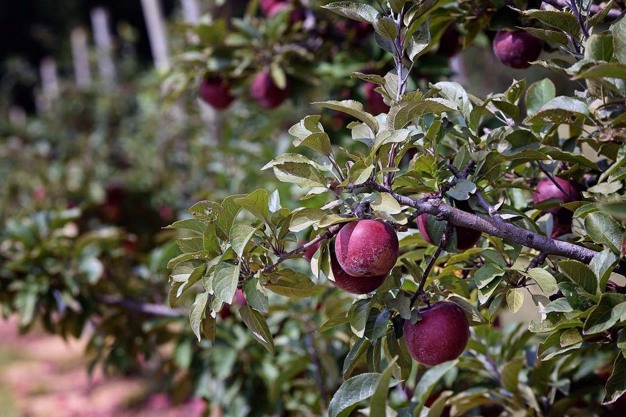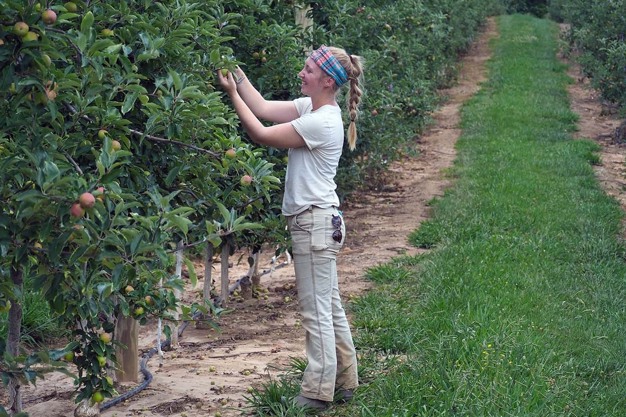When Terry Kelley was able to get out and about in the aftermath of Hurricane Helene, the analytical part of his brain was busy examining and cataloging the devastation wreaked by the terrible storm.

Kelley is the director of the NC State Extension Center in Henderson County, and the tree fruit agent. North Carolina is No. 7 in the nation in apple production and about 85% of the state's apples are produced in the county, so it was critical to assess the damage and determine how he could best help area growers. But while he was inspecting the damage to crops, his mind kept going to the hurricane's impact on the people he's come to know in his seven-plus years as an agent in the county.
"Knowing these growers and having a relationship with them and seeing something like this is hard to take," he said. "You go see a grower who has just had his whole orchard wiped out — it's tough."

NC State Extension agents bring a high level of expertise to their roles. They can be counted on to provide cutting-edge, research-based knowledge to improve the lives of North Carolinians from the coast to the mountains. County agents also live in the region where they work. The people they help, the people they interact with daily, are their friends and neighbors.
"I know these people," Kelley said. "They're my friends. Just knowing what they're going through personally, starts to wear on you. You help with what you can, and try to make a difference in their farms and their lives."
Hurricane Helene swept through Western North Carolina in late September, bringing record rainfall, historic levels of flooding, and tens of billions of dollars in damage. Roads were washed out, and homes were destroyed. The combination of strong winds and heavy rains toppled trees and power lines.
"We lost trees in some places, and had a lot of apples blown off," Kelley said. "We probably lost 20-30% of the overall crop. Some growers lost products that had already been harvested because the power to their coolers went out. We had several thousand bushels lost from that."
Late September is peak apple season in the North Carolina mountains. Growers are about halfway through the year's harvest. Their tasty, nutritious wares are sold at roadside stands to the profusion of tourists who make an annual trek to the state's highlands to see fall color.
The storm's timing couldn't have been worse. Not only was a significant portion of the season's harvest lost but damaged roads and dangerous conditions impacted the ability to sell what had been picked.
To view the full report, click here.
For more information:
NC State University
Tel: +1 (919) 515 2811
www.ces.ncsu.edu
